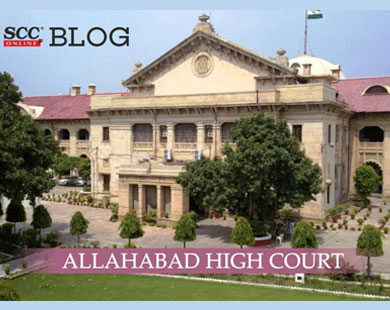Allahabad High Court: In an application filed under Section 482 of Code of Criminal Procedure, 1973 (‘CrPC’) against the order dated 03-12-2018, whereby the applicant has been summoned to face trial for offences under Section 376-D, 212 of the Penal Code, 1860 (‘IPC’) Shekhar Kumar Yadav, J held that a women cannot commit the offence of rape, but if she facilitated the act of rape with a group of people then she may be prosecuted for gang rape in view of the amended provisions.
The applicant submitted that she is a lady, hence no offence under Section 376-D of IPC is made out against her, thus she has been wrongly summoned by the Trial Court. Further, it was argued that the applicant has been summoned in exercise of powers conferred under Section 319 CrPC solely relying upon the statement of victim as well as some other extraneous documents, which in fact is not sufficient. It is also argued that a woman cannot commit rape and therefore, she cannot be prosecuted for gang rape because woman cannot be said to have an intention to commit rape. Thus, the impugned order is vitiated by manifest error of law and amounts to blatant miscarriage of justice, and, therefore, is liable to be quashed.
The government advocate submitted that applicant has committed the alleged offence and it cannot be said that being a lady, the applicant or a women cannot commit the offence under Section 376-D IPC.
The Court took note of Hardeep Singh v. State of Punjab, (2014) 3 SCC 92, wherein it was held that “all that is required by the Court for invoking its powers under Section 319 CrPC is to be satisfied that from the evidence adduced before it, the person against whom no charge had been framed, but whose complicity appears to be clear, should be tried together with the accused. Further, in Manjeet Singh v. State of Haryana, 2021 SCC OnLine SC 632, it was held that “it is only the material collected by the court during the course of inquiry or trial and not the material collected by the investigating agency during the investigation of the case which can be used, while arraigning an additional accused”
The Court after going through the amended provisions of Sections 375 and 376-E IPC rejected the argument of the applicant that a woman cannot commit rape and, therefore, she cannot be prosecuted for gang rape.
It said that the amended provisions of Sections 375 IPC and 376 IPC, specifically states that the act of rape can only be done by a ‘man’ and not by “any woman”. Therefore, a woman cannot commit rape. But, the Court after looking through the amended provision of Section 376-D IPC, which is a distinct and separate offence of gang rape, according to which, “where a woman is raped by ‘one or more persons’ constituting a group or acting in furtherance of a common intention each of those persons shall be deemed to have committed the offence of rape and shall be punished with rigorous imprisonment for a term which shall not be less than twenty years”, said that to establish an offence under Section 376-D IPC, the prosecution has to adduce evidence to indicate that ‘one or more persons’ had acted in concert and in such an event, if rape had been committed by even one, all the accused will be guilty irrespective of the fact that victim had been raped by one or more of them.
The Court further said that this provision embodies a principle of joint liability, and the essence of that liability is the existence of common intention that presupposes prior concert which may be determined from the conduct of offenders revealed during action. The term “person” used in the Section should not be construed in a narrow sense as Section 11 IPC defines ‘person’ as it includes any company or association or body of persons whether incorporated or not. Thus, it was held that a women cannot commit the offence of rape, but if she facilitated the act of rape with a group of people then she may be prosecuted for gang rape in view of the amended provisions.
[Suneeta Pandey v. State of UP, 2023 SCC OnLine All 44, decided on 13-02-2023]
Judgment by: Justice Shekhar Kumar Yadav.
Advocates who appeared in this case :
Counsel for Applicant: Ravindra Prakash Srivastava;
Counsel for Opposite Party: Government Advocate.
*Apoorva Goel, Editorial Assistant has reported this brief.







